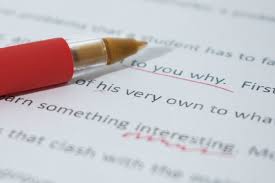What is hedging in English language?

When we read the word hedge, the first thing we visualise is a neatly grown green fence around a garden. That's a physical hedge. But there's also a hedge in writing: the creation of word shrubbery to protect your words.
What is hedging?
Hedging is a way of writing. It is a language tool used to express opinions, make complaints and claims, and answer questions. This type of writing is used mainly in academic work- such as in describing a discovery. Scientists and lawyers often use hedging language.
How do you define hedging?
Hedging is the use of language in a cautious or vague way. With hedging, you can make evasive statements. The verb "to hedge is to use cautious, vague or evasive language so that the writer is not challenged on what he writes.
One simple example of hedging is "If the material is left in the open, it is possible it may burst into flames." The writer avoids saying "It will burst into flames."
We often read this sort of language in statements made by economists and those from the meteorological department. There may be isolated rain in some parts of the district. The weather may remain cloudy in other parts." if none of this happens the Met department can say, "Well, we said may happen?
You now understand the importance of hedging. Hedging is done to avoid answering a question directly.
Q: Will it rain tomorrow?
A: It is likely that there may be light-to-heavy showers in different parts of the country during the day or night.
This way, the Met, department does not commit itself to rain or shine. Weather is unpredictable, it says through hedging. At the same time, it has warmed you of possible rain!
Hedging has its uses
Using this language softens strong claims and demands.
Normal: Don't go near that statue! Hedged: If I were you, wouldn't go near that statue.
Hedging helps to limit or qualify the claims and statements we make.
Normal: The man caught by the police yesterday is the one who robbed the bank
Hedged: The man caught by the police yesterday allegedly robbed the bank.
In their reports, journalists use the word "allegedly" quite often. This is because the statements they make may not have proof. In that case, it is better to hedge so that no one catches them for wrong reporting later on.
Hedging protects reporters from court cases.
But be careful!
Do not make hedging a habitual feature of your writing. Then you start sounding like you don't have confidence in your thoughts, ideas, and opinions.
Overuse of hedging language may make the reader wonder what is the authors stand on this? Is he/she saying it is right or wrong? Did it happen or not? Will this work or not?
Phrases such as "1 think we should "or "1 feel like or it would be great if weaken your sentences. The sentences seem to ramble aimlessly.
Show your readers that you have done your research and stand by what you say. Your readers will be happy to read your reports. They will respect your opinions if they are put out in crisp, unambiguous language. Your sentences should express confidence and your arguments should be to the point.
How do we go about hedging?
Here are some tips for you.
[1] Modal verbs
- can
- could
- may
- might
- should
- would
Example: From the data available, we can conclude that greenhouse gases may be responsible for global warming.
Non-hedged: Data available show that greenhouse gases are responsible for global warming
[2] Modal adjectives
- possible
- probable
- likely
- unlikely
Example: It is likely that the probable results of the experiments are faulty Non-hedged. The results of the experiments are faulty
[3] Adverbs
- conceivably
- perhaps
- possibly
- probably
- usually
Example: We could conceivably map out the area before September
[4] Nouns
- assumption
- likelihood
- possibility
- probability
Example: There is a strong possibility, therefore, that there will be a dust storm over the weekend
[5] Lexical verbs
- assume
- believe
- indicate
- interpret
- seem
- suggest
Example: I believe that his words made the audience angry: his speech seemed to suggest that the people were stupid. Maybe his words were interpreted wrongly.
[6] Introductory phrases
- It appears that…
- It can be argued that…
- We can assume that…
- It is likely to be the case that…
- It is probable that…
- It can be concluded that…
- The data indicates…
[7] Vague language
‘about’, ‘kind of’, ‘sort of’, feel, ‘seems like’.
Example: It's kind of difficult for me to share that information with you.
I feel that you should play less and pay more attention to your books. It is about time
[8] Hedging in academic writing
Hedge words and phrases allow writers to be academically cautious, to acknowledge the degrees of uncertainty in their statements and claims. Rather than claiming something is an absolute truth or fact, they hedge and stay safe. The chances their claims will be questioned or disputed by other academics then are fewer.
Examples of hedging in academic writing:
- The evidence from this research suggests that…
- The data collected from this study appears to support the assumption that…
- It seems likely that these results are due to...
- There are various possible explanations for this...
- It is almost certain these changes can be attributed to…
- There is a strong possibility that X would be enhanced by…
- Current research appears to suggest that…
Picture Credit : Google


